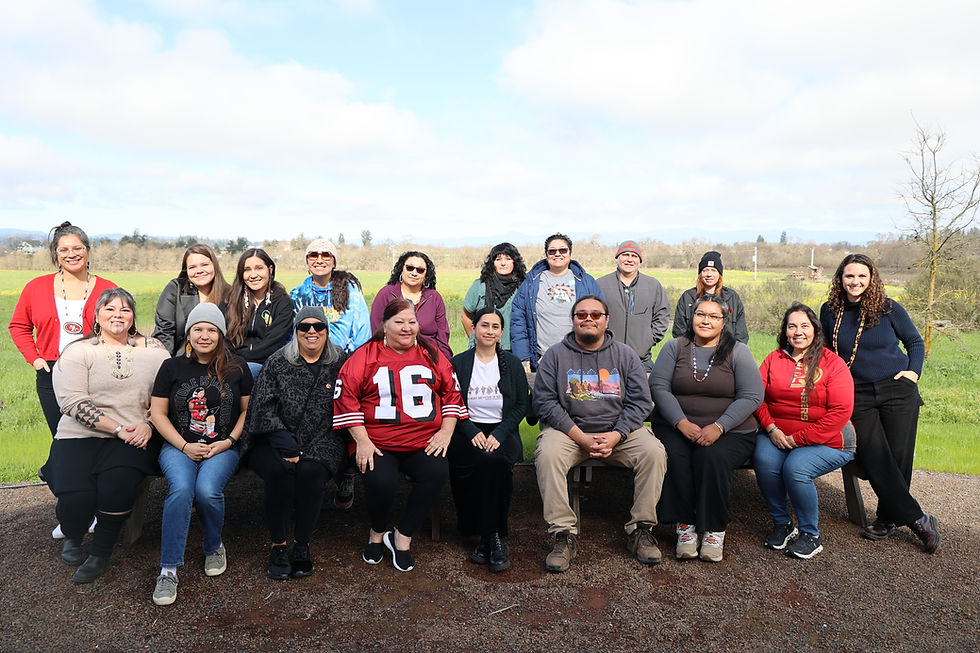Free Webinar Recording: Understanding & Practicing Indigenous Data Sovereignty
- Redbud Resource Group

- Aug 16, 2022
- 2 min read
Webinar facilitated by our Director of Research, Madison Esposito.

Virginia Hedrick was one of our panelist. Virginia is currently the executive director for the California Consortium for Urban Indian Health (CCUIH) and serves on the California Wellness Foundation Board of Directors. She is an enrolled member of the Yurok Tribe of California and is also of Karuk descent. She has more than 15 years of experience in public health. Her work includes chronic disease prevention, implementation and policy impacts of the Affordable Care Act for California tribes, as well as health research.
Tamee Livermont was our other panelist. Tamee is Oglala Lakota, is a 2nd-year medical student at the University of Minnesota Medical School-Duluth Campus. She earned her BA in Native Studies and BS in Medical Biology from the University of South Dakota in 2018, and her MPH from Vanderbilt University in 2020. Prior to attending medical school, she served as the Tribal Liaison at the Great Plains Tribal Leaders Health Board, and public health liaison in the Great Plains Tribal Epidemiology Center, supporting COVID-19 response across ND, SD, NE, and IA. Upon completing her degree, she looks forward to serving her own tribal community by improving healthcare delivery, public health infrastructure, and as a healer. In her free time, she enjoys sewing quilts and skirts, reading, and participating in other community activities.

Working with the world around us, Native and Indigenous peoples have always been scientists. Utilizing our ways of knowing, these are just four prime examples that were included in our panel discussion.
"Our data is our culture... Those cultural practices are our data..." quote by Madison Esposito, Director of Research at Redbud Resource Group.

The concepts of FAIR seem attractive at first glance but can cause real problems within native communities, one of the biggest issues being that these principles are focused on facilitating easy and wide distribution of data but miss the power differentials and historical contexts that surround indigenous communities. Considering that the vast majority of data collected about our Native communities is used in non-indigenous spaces and not employed for our benefit, these principles actual pose to cause further damage to Native communities.

Thankfully there have been efforts from within Indigenous Data Sovereignty advocacy groups to expand on these principles and adapt them to better support the sovereignty of Native Nations in the world of data science.
To learn more, check out Indigenous Data Sovereignty Networks
If you did not have the chance to attend our Indigenous Data Sovereignty Roundtable Discussion, here is the full recording!







Comments